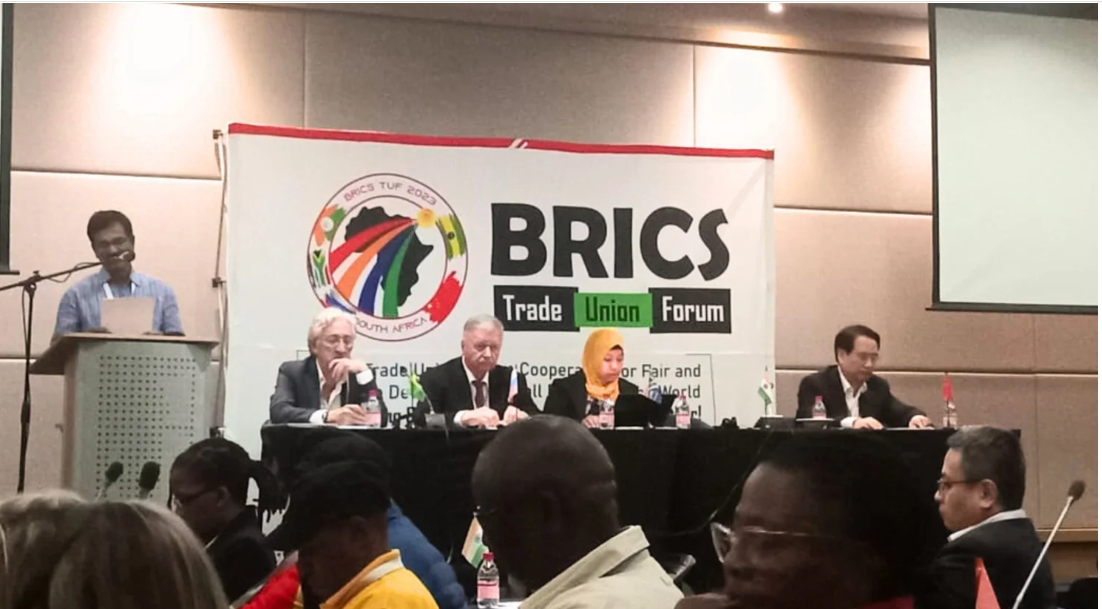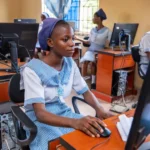Nigeria’s House of Representatives’ committee chairman on Foreign Affairs, Wole Oke, has proposed for BRICS nations to deepen trade cooperation using local currencies.
This is coming as the administration of US President Donald Trump continues to isolate the rest of the world in an effort to achieve his “America first” agenda.
Oke is advocating for a reduction in reliance on Western markets and dollar-based transactions.
BRICS is an intergovernmental organization whose name is the combination of the initials of its founding countries: Brazil, Russia, India, China, and South Africa. Egypt, Ethiopia, Indonesia, Iran, the United Arab Emirates, and Nigeria have recently joined the group as partners.
Oke spoke at a BRICS trade forum in Brazil on June 2, emphasizing that as economic uncertainty looms around the world, only strong intra-BRICS ties could offer stability for developing economies.
“Strengthening BRICS trade is no longer optional,” he said. “It is a necessity. We must trade more with each other, invest in one another, and build a trade ecosystem that puts our people first.”
But Oke is only echoing a decades-long concern among countries in the global south over overreliance on the U.S. dollar, which weakens local currencies and contributes to failing economic structures.
Presently, international trade transactions are all made in U.S. dollars, and this has placed African countries facing currency depreciation at a disadvantage.
In Nigeria, dollar-based trade inflates import costs, increases inflation, and affects foreign reserves.
According to Professor Anil Sooklal, South Africa’s BRICS Sherpa, or presidential representative at BRICS, African countries could save as much as $5 billion annually in transaction and currency conversion costs if intra-continental and BRICS trade were settled in local currencies.
In pushing through his point, the Nigerian lawmaker said Professor Sooklal’s quoted figure is particularly relevant for Nigeria, Africa’s largest economy, which is already making currency deals with China.
The Nigerian government in 2024 renewed a currency swap agreement with China, enabling transactions in the Chinese yuan and the Nigerian naira.
Nigeria’s Central Bank has also shared plans to extend the multi-currency trade settlements to India.
Economic improvements among BRICs nations would largely depend on digital transformation, local currency trade, and the use of strategic resources for building “resilient trade corridors” within BRICS and its expanded bloc (Egypt, Nigeria, Ethiopia, Iran, Saudi Arabia, and the UAE), Oke believes.
The establishment of a local currency settlement system to cut exposure to “volatile currency politics,” as well as joint investments in agriculture, pharmaceuticals, manufacturing, and clean energy, is necessary, he emphasized.
While Nigeria as a BRICS partner has not fully joined as a member, Oke said the country is now pushing for a seat at the table.
Nigeria's House of Representatives' committee chairman on Foreign Affairs, Wole Oke, has suggested that BRICS nations should enhance trade relationships using local currencies.
This recommendation arises amidst the U.S.'s isolationist "America first" policy, which prompts Oke to advocate for reduced dependency on Western markets and dollar-based transactions.
BRICS, comprising Brazil, Russia, India, China, and South Africa, recently welcomed several new partners, including Nigeria.
Oke, speaking at a BRICS trade forum in Brazil, stressed the necessity of intra-BRICS trade for economic stability, particularly as global economic uncertainties continue.
He emphasized the need for stronger trade links to empower local economies in developing regions.
The reliance on the U.S. dollar is seen as a longstanding concern due to its impact on local currencies and economic structures, with dollar-based transactions inflating import costs and affecting inflation and foreign reserves in Nigeria.
Professor Anil Sooklal, South Africa's BRICS Sherpa, highlighted that African nations could potentially save $5 billion annually in transaction costs by settling trade in local currencies.
Nigeria's strategic moves include a currency swap with China renewed in 2024 and plans to adopt multi-currency settlements with India.
Oke notes that economic progress within BRICS nations will rely on digital transformation, local currency trade, and strategic investments, which include agriculture, pharmaceuticals, manufacturing, and clean energy.
As Nigeria seeks full membership within BRICS, Oke advocates for establishing local currency settlement systems to mitigate the risks associated with volatile currency politics.






